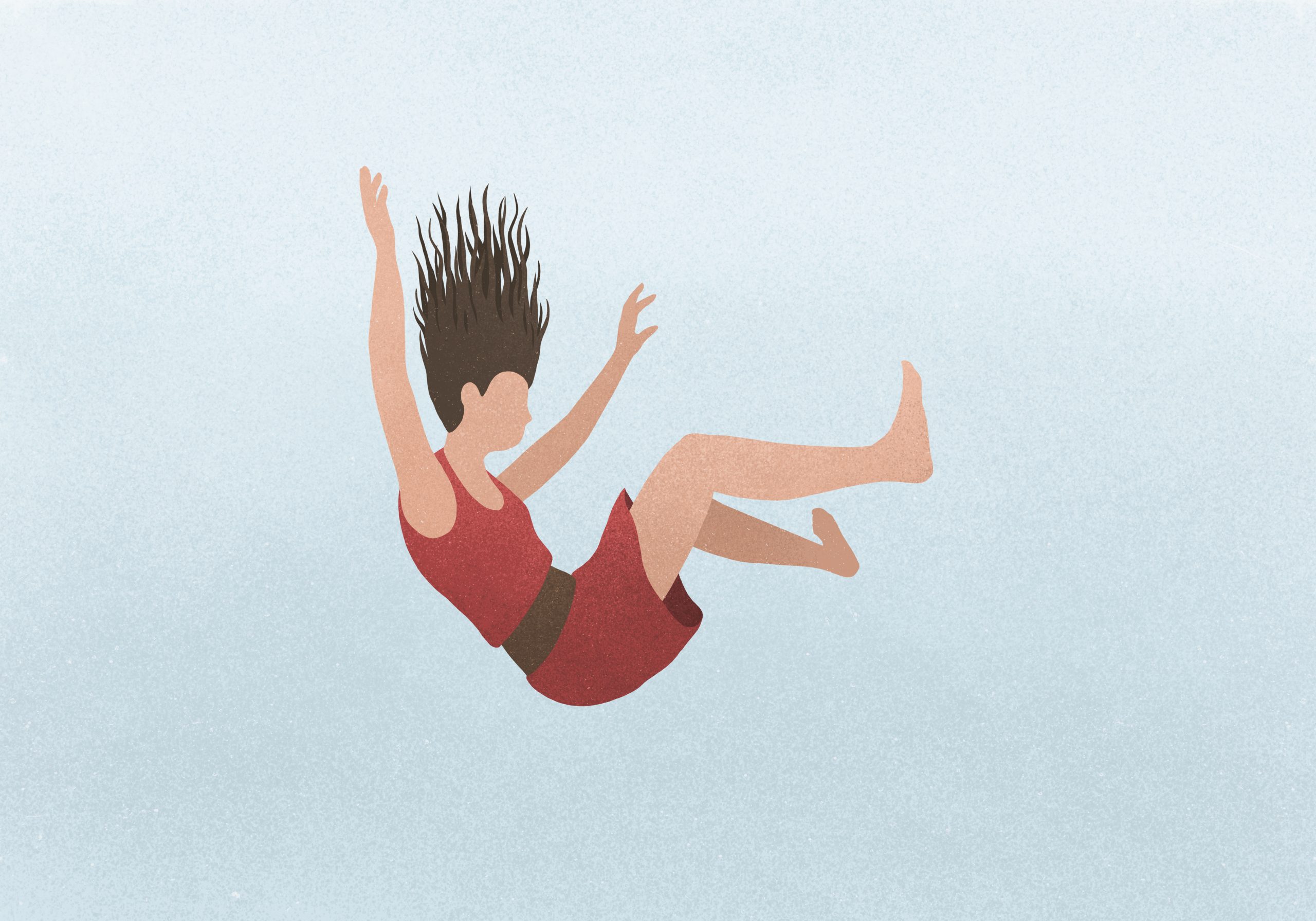What is anxiety? Anxiety symptoms, treatment and how to manage it
There’s an epidemic of anxiety in our society and midlife women are particularly vulnerable. How can we stop it? We investigate and reveal our top tips for dealing with anxiety


We’ve all experienced that jittery feeling, lump in the throat and “what if it all goes wrong” fear that whirrs around our brain when we’re exchanging on a house sale, prepping for a job interview or waiting for hospital results.
Anxiety may not be nice, but it’s normal, natural and motivating. Until it’s not.
What is anxiety?
When nerves don’t go away, when those feelings of dread begin to dominate, then anxiety is a problem – it increases our risk of heart disease, type 2 diabetes, certain cancers and gastrointestinal disorders. One in 20 of us suffers from persistent anxiety, with mixed anxiety and depression affecting one in 10 of us, according to figures from Anxiety UK.
Anxiety symptoms
“It’s normal for people to feel anxious at some point but nervousness can become extreme”, explains Dr Dimitrios Paschos, consultant psychiatrist at recognitionhealth.com. He notes that psychological symptoms can include feelings that you are going to die, lose control or faint.
The physical symptoms of anxiety and panic attacks
Physical symptoms of anxiety can include
- Tingling in the hands and feet
- Dizziness
- Breathing difficulty
- Nausea
- Perspiration
The reaction happens as we perceive a threat and our body responds with a rush of cortisol.
Mental symptoms of anxiety can include
Sign up to our free daily email for the latest royal and entertainment news, interesting opinion, expert advice on styling and beauty trends, and no-nonsense guides to the health and wellness questions you want answered.
- Panic, fear and uneasiness
- Sleeping problems
- Lack of concentration
- An inability to relax
- Feeling like the world is slowing down or speeding up
- Feeling disconnected from your mind or body, or like you're watching someone else (this is a type ofdissociation)
Here’s how to spot the early signs of anxiety
"We get anxious when pressure exceeds our ability to cope,” says Professor Cooper.
Stage 1 | Withdrawal We can’t face socialising, and family and friends might comment that we’re not ourselves. Stage 2 | Health & lifestyle We might drink or smoke more, and turn to comfort foods. Headaches and insomnia could be a problem. Stage 3 | Irrational anxiety When fears take over; we might become phobic about leaving the house, for example.
What causes anxiety?
Along with depression and stress, anxiety is now the biggest cause of absence from work; a keep-it-hidden, put-on-a-braveface problem.
“People say to me, ‘You have a great job, a great husband, what’s the matter with you?’ So, then I feel guilty on top of all the other worry,” says Angela Bates, 56, a former accountant from Sheffield, who blames her career burnout on her constant anxiety.
“I found it harder and harder to cope in the office and would make excuses to avoid face-to-face meetings with clients; I’d feel that I was going to faint in front of them, and that just escalated my anxiety.”
How to deal with anxiety
Simple lifestyle changes may help. Try these tips from Dr Paschos:
Reduce stimulants
Cut back on alcohol and caffeine, which increase stress. Water and herbal teas will keep you hydrated and enable your body to cope better with anxiety.
Get active
Exercise helps to metabolise the stress hormones adrenaline and cortisol, and restore calm in the body.
Tackle poor sleep
Sleep deprivation or interruption can increase stress levels.
Try meditation
This is a great way to unwind and clear the brain. It also reduces the level of cortisol.
See friends
Socialising helps to reduce anxiety and depression, and improve mental sharpness.
Anxiety help and anxiety treatment: what are your options
If you feel your anxiety levels are unmanageable and you can’t cope, then seek help. Your GP may be able to prescribe medication or refer you for counselling.
“Cognitive behavioural therapy can alleviate feelings of anxiety and panic, and help change how you think and act,” says professor of psychiatry at Southampton University David Baldwin, for AXA PPP healthcare. Antidepressants are frequently prescribed for people with anxiety who suffer from panic attacks.
“If psychological therapies are combined with antidepressants, 85% of patients respond,” says Professor Baldwin. Treatment is effective in around 65% of patients. And beta blockers can be prescribed in low doses to control shaking.
You could also try a website or one of the best podcasts for anxiety, which will give you practical tools and online support for reducing stress. Their mission is to “provide the best therapy, in the right place, when you need it the most”. At woman&home we believe it’s important to be able to access support whenever and however you need it, which is why we have partnered with Mindbox to offer you an exclusive discount of up to 50% off their services.
For support and more information on this issue, go to anxietyuk.org.uk.Don't suffer in silence.
Is anxiety genetic?
The causes of anxiety, or why some people are more susceptible than others, aren’t clear, but it’s thought that genes may be a factor – many people with the condition say it runs in the family.
Melissa Harvey, 42, from Glasgow, suffers from panic attacks and says anxiety is a problem that runs through her family. “My mum and sister have always been very anxious – like me, they tend to ruminate on problems. My sister has insomnia and, like me, my mum has panic attacks. Worryingly, my son is showing signs of anxiety now. He often needs reassurance about going to school or new places.”
Stressful events such as divorce, bereavement and redundancy are triggers, while a traumatic experience like an accident may cause post-traumatic stress disorder, leaving someone feeling nervous and anxious for years.
“People who are self-analysing or perfectionist may be more prone to negative thoughts, and a long-term health condition or history of drug or alcohol abuse are also risk factors,” says Dr Siegfried Kasper, Professor of Psychiatry at the Medical University of Vienna. “Physiologically, an imbalance of calming serotonin and stimulating noradrenaline, and overactivity of the parts of the brain controlling emotions and behaviour, may also play a role.
“Anxiety isn’t a new problem; the sources of stress are just different for every decade, whether it was the world wars in the 20th century or Brexit now. Uncertainty and lack of control are key factors,” explains Professor Cary Cooper, a clinical advisor to Anxiety UK.
“What’s different today is that we lack the social support of family living nearby and a close community of neighbours and friends, so we have no one to help us talk out our fears. You need to understand what your anxiety trigger is, then talk to someone who can help you unwrap what’s happening and clarify your options,” says Professor Cooper. “You may have to tackle your boss about the excessive demands of your job, or accept your marriage is over.”
Professor Cooper is keen to point out that many anxiety remedies won’t solve the underlying cause of the problem – if you’re dealing with financial problems, say, then mindfulness isn’t going to pay your mortgage. “What relaxation techniques can do is calm you sufficiently to look at the root issues,” he says.
The menopause and anxiety
Anxiety can happen at any age but midlife has a unique collection of potential triggers. “It’s a time when our kids leave home and we may need to recalibrate our identity.
We might be worried about ageing or our marriage. There can be uncertainty around finances and security in our retirement,” says Professor Cooper.
We can also find ourselves in a caring role or sandwiched between the needs of our children and parents. According to a survey from Anxiety UK, 78% of respondents felt more anxious as a result of becoming a carer. And then there’s the menopause.
“It might be mild anxiety before a flush or a full-on panic attack, but 65% of the women I’ve surveyed said they felt more anxious at this time,” says menopause expert Maryon Stewart (maryonstewart.com).
“When we are coping with a lot of changes in life and feel in a bad state, then any difficulty – whether it’s a challenging teenager or career stress – can seem like a mountain to tackle. If we can get to a point where we are no longer overwhelmed with anxiety and other menopausal symptoms, then we can look forward to a new stage of life.”
Stewart believes that many women enter the menopause years with their nutrients depleted by stress, dieting and ill health, so the first step is to boost them with a balanced diet and a broad-spectrum vitamin and mineral supplement, which will help normalise our hormonal function and help us feel calmer. She also recommends replenishing our diminishing oestrogen levels with natural oestrogen from plant foods, such as soya, linseeds and red clover supplements. “It tricks the brain, so it stops sending out thermal surges in an attempt to ‘wake up’ our ovaries so they start producing oestrogen again.”
With fewer flushes, anxious feelings are less likely to be triggered.
Can your diet help stop anxiety?
What we eat may affect anxiety in other ways too.
“The gut is known as the ‘second brain’ as it has a profound effect on the functioning and wellbeing of our body,” says Dr Eileen Murphy, a specialist in the microbiome and gastrointestinal health.
“The gut produces 90% of our body’s serotonin, which boosts feelings of happiness. The production of the stress hormone cortisol is also modulated by the microbiome, so if we can improve the levels of healthy bacteria in our gut, it may have a positive effect on our stress response.”
There’s evidence that omega-3 fatty acids, fibre, probiotics and prebiotics can all improve gut health.
“Eating a diet that’s good for gut health may help to make you more resilient to stressors,” says Dr Murphy.
Lauren is the former Deputy Digital Editor at woman&home and became a journalist mainly because she enjoys being nosy. With a background in features journalism, Lauren worked on the woman&home brand for four years before going freelance. Before woman&home Lauren worked across a variety of women's lifestyle titles, including GoodTo, Woman's Own, and Woman magazine.
